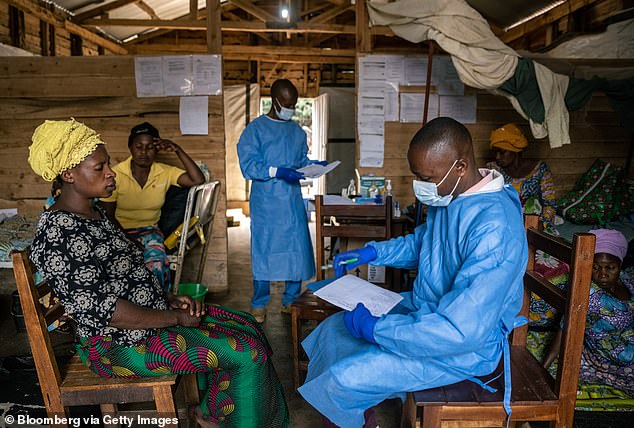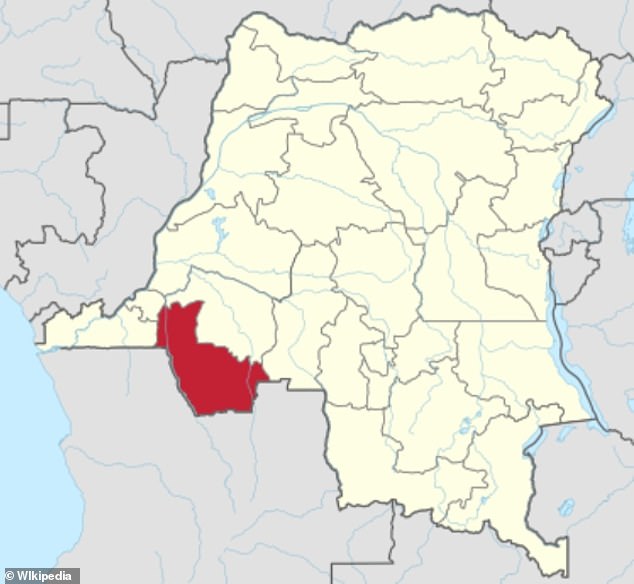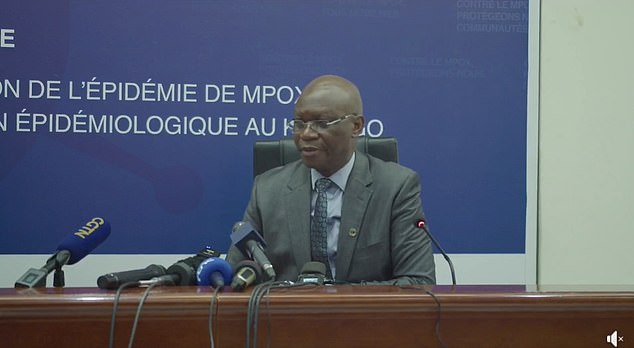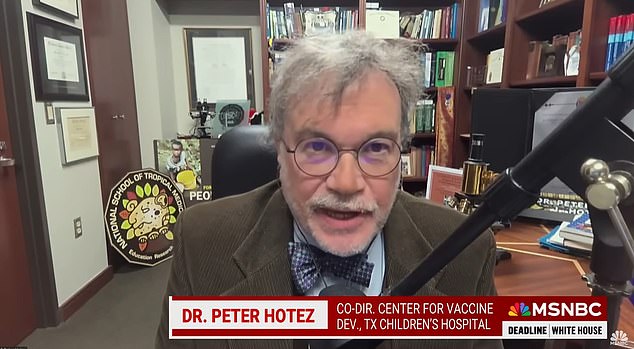A pro-Covid restrictions virologist has warned that Donald Trump will face a torrent of infectious diseases when he takes office.
Dr. Peter Hotez’s comments come as Congo is on “high alert” after a mysterious respiratory virus killed nearly 150 people, mostly teenagers.
Dr. Hotez, a leading advocate of lockdowns and mask mandates during the Covid pandemic, warned that at least nine infectious diseases were currently spreading that could cause another pandemic, in a call for the Trump administration to not to cut funding for disease research.
In an interview with MSNBC newsHe said, ‘This is why we should worry about these things. We have some big things coming up.
“All of that will come crashing down on January 21st on the Trump administration. “We need a really good team to be able to handle this.”
Scientists are currently warning of a rise in cases of bird flu in animals spreading to humans, as well as a resurgence of measles and whooping cough linked to falling vaccination rates.
His comments came hours before the Congolese government’s health minister warned that the country was on “high alert” for an outbreak of a disease “of still unknown origin.”
At least 376 people have already been infected by the disease that is ravaging the province of Kwango, in the southwest of the Democratic Republic of the Congo (DRC).
Children aged 16 to 19 are most affected, the BBC reports, with patients suffering from a flu-like illness with symptoms including fever, headache, cough, difficulty breathing and anemia (or lack of red blood cells). ).
Dr. Peter Hotez, pictured above, was speaking on MSNBC warning of the dangers posed
A team from the World Health Organization has been sent to the area to analyze samples and identify the cause of the disease. They are expected to release test results in the coming days.
The Minister of Health of the Congo, Roger Kamba, warned today in a press conference: “We are on high alert. We consider that this is an epidemic that we must monitor as much as possible.
“We are more or less in the affirmation that it is respiratory,” he added, referring to how the disease can spread between people.
But he added that this is still a “hypothesis” and that the country is still waiting for the first results of the tests.
Authorities initially suggested that 143 people had died from the mysterious illness, although Authorities appear to have reduced that number to 71 deaths.
These include 27 people who died in hospital and 44 people who died in the community.
Of the people who died in hospital, 10 died from lack of blood transfusions and 17 from respiratory problems, the Health Minister said.
Most of the cases were children in their teens, aged between 15 and 18, according to the BBC.
Dr. Annie Rimoin, an epidemiologist at the University of California, Los Angeles, who has worked in the Congo since 2002, said NBC News that diagnosing diseases can be complicated by underlying health problems in the local population, including malaria and malnutrition.

Pictured above is a doctor talking to a patient about treating monkeypox in the South Kivu region in September this year.

The map above shows the Democratic Republic of the Congo and highlights the Kwango province where the outbreak occurred.
“I think it’s very important to be aware of what’s happening, and I think it’s also very important not to panic until we have more information,” he said.
“It could be anything,” he added. ‘It could be flu, it could be Ebola, it could be measles. At this point, we really don’t know.”
Dr. Krutika Kuppalli, an infectious disease expert and associate professor at the University of Texas Southwestern Medical Center in Dallas, said at this point it was difficult to know what was causing the outbreak because only general symptoms had been reported.
“We need more information,” he told DailyMail.com, “the information that has currently been provided speaks of a number of diseases.”
When asked if it could be monkeypox or Ebola, he said: “In what they are reporting, we have not seen any reports of a rash or skin abnormality, which would be consistent with mpox.”
“Normally, with viral hemorrhagic fever (like Ebola), you hear reports of coughing up or vomiting blood, and that hasn’t been reported either.”
He added: “The reports are worrying, but we need more data and information about the symptoms that are being seen on the ground.”
Warning of emerging infectious disease outbreaks yesterday, Dr. Hotez did not specifically mention the situation in the Democratic Republic of the Congo during his call with MSNBC.

The image above is a screenshot from today’s press conference in the Democratic Republic of the Congo. It shows Roger Kamba, who heads the country’s health department.
He said: ‘I’m really worried about (H5N1), it’s affecting all wild birds in the western part of the United States and, to the north, it’s reaching poultry.
‘We continue to see sporadic human cases, there is no human-to-human transmission yet, but that could happen. It’s in the cattle, in the milk and that’s just the beginning.’
He continued: “We have another major coronavirus probably brewing in Asia, we had SARS-2 in 2002, Covid-19 in 2019, and we know that these viruses jump from bats to people thousands of times a year.”
But there is still more. We know we have a big problem with mosquito-borne viruses along the Gulf Coast, where I am here in Texas, we expect dengue to return and possibly the Zika virus or the Oropuche virus, maybe even yellow fever.
‘And then we have this whole sharp rise in vaccine-preventable diseases due, in part, to the anti-vaccine activism that is so prominent right now.
“We have a five-fold increase in cases of whooping cough, or whooping cough, over the last year, 15 measles outbreaks this year, we have polio, which has been in New York state wastewater.”
He warned that all of these threats would fall on the Trump administration when it takes office on January 21, after Inauguration Day.
Trump has nominated vaccine skeptic Robert F. Kennedy Junior to head the Department of Health and Human Services, who has yet to be confirmed by the Senate.
He has already promised to cut spending on infectious disease research and instead redistribute funds to solve the country’s chronic disease epidemic, with rising cases of heart disease, cancer, diabetes and obesity.

